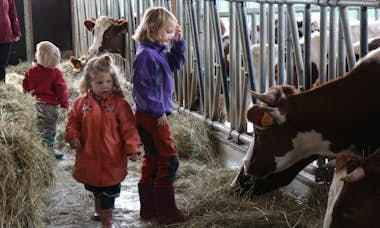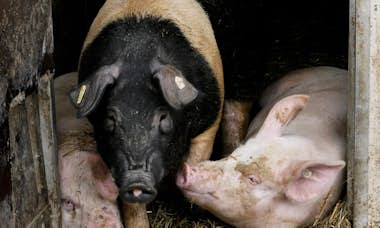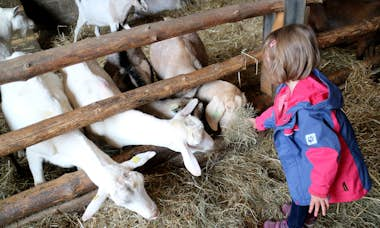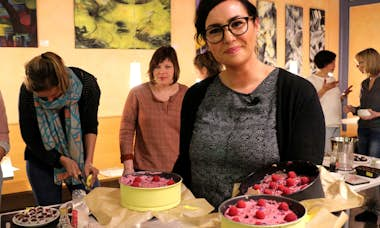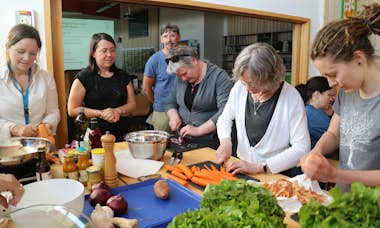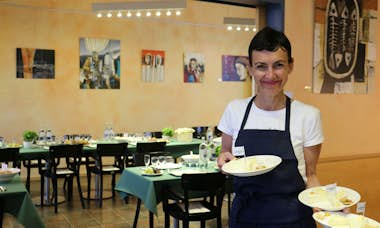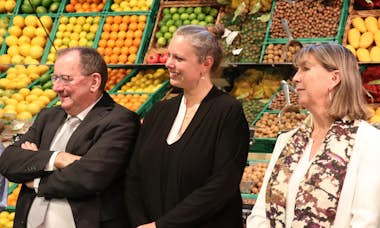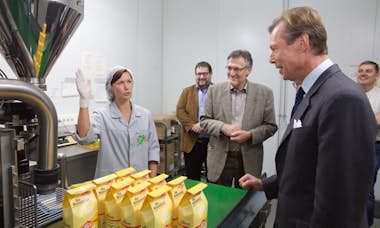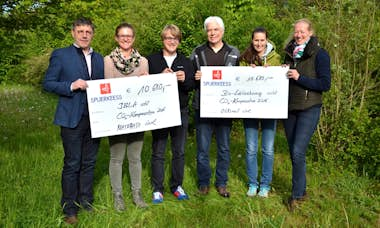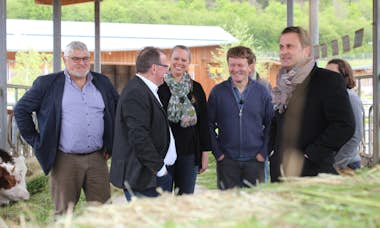About NATURATA
“Fair a kooperativ mat de Bio-Baueren”: this was the slogan with which we launched in 1989, as organic pioneers. Since then, the food market has evolved around us at a dizzying speed. And yet, our farmers have stayed loyal to us, and we to them. It is mainly they who, since the beginning, have guaranteed the authenticity of our stores and our products.
We are the retail outlets for the cooperative Bio-Bauere-Genossenschaft Lëtzebuerg
In 1988, the very few organic farmers in Luxembourg founded Bio-Bauere-Genossenschaft Lëtzebuerg (BIOG). The cooperative aimed to encourage the processing and marketing of Luxembourg organic and Demeter products and to actively support organic and biodynamic agriculture. It was out of the cooperative’s temporary outlet in the city of Luxembourg that the first NATURATA store was born, in 1989. Today, it is still located in the original premises in Rollingergrund and remains the great favourite of its loyal customer base.
However, a lot of water has flowed under the bridge these past three decades: on average, our large stores offer more than 9 000 items in the organic food and natural cosmetics segments.
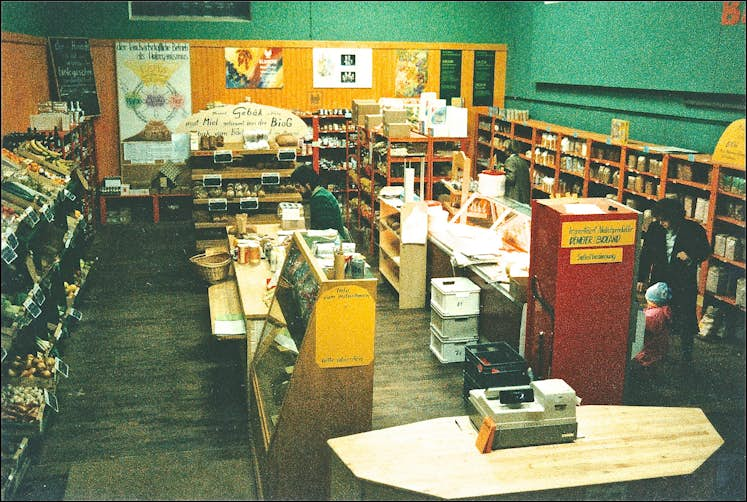
Our range is about more than just “organic”
Our entire range of food products is certified organic. Under the European Organic Production Regulation, this means that GMOs, chemical pesticides, chemical fertilisers, growth hormones and unnecessary food additives are banned.
Many of our products go way beyond the European minimum requirements, particularly those produced and processed in accordance with the ambitious directives of the Bio-Lëtzebuerg association or of Demeter. These set not only ecological standards, but also social, thus strengthening mutual collaboration all along the value chain.
This also applies to the BIOG brand: the common brand of the Bio-Bauere-Genossenschaft cooperative and the organic wholesaler BIOGROS exemplifies the transparent labelling of products, fair prices, and commercial relationships founded on the cooperation and processing of products essentially grown at regional level.
Agriculture shapes our landscape, it influences the environment, our culture and also each and every one of us. It should therefore not be practised anonymously and in an industrial style. Every agricultural product has its value and cannot be taken for granted.
With us, economic cooperation opens up new paths
Traditional agriculture is being increasingly replaced by mass, factory farming. The price pressure on small farms is crushing, and the disappearance of farmers in many regions of Europe is worrying.
This is why we are actively opening up new paths in the field of economic cooperation. Our approach is inspired by the associative economy. According to this principle, a healthy economic system is distinguished by the fact that each of the participants cooperates and does not compete with the others. For the purpose of strengthening collaboration along the value chain, literally from field to fork, we regularly meet our farmers, processors, suppliers and consumers for discussions on the current state of the market.
The new fair&associative label identifies the products whose social and ecological aspects have been verified during these meetings. This label currently features on more than 30 BIOG brand products.
We want to open the discussion with our customers
Communication is not a one-way street, but rather a dialogue between equals. We don’t consider ourselves to be “patter merchants”: we don’t attract our customers with low fixed prices to the detriment of our farmers, and we don’t encourage over-consumption either. We promise you sincere, transparent and specific communication, and we are always ready to listen to your questions and suggestions.
Our private ownership structure allows customers to really have a say. In 1999, 2005 and 2013, our parent company, OIKOPOLIS Participations SA, offered our customers shares in the OIKOPOLIS group. Currently, around 300 customers are co-owners of the group. This corresponds to nearly 60% of the shares in the company.
We engage socially
We want to shape, support and breathe life into agriculture by getting involved in political and social debate and by offering a view behind the scenes:
- with our series of events mat NATURATA ënnerwee, mat NATURATA genéissen and NATURATA Kannerspaass, we invite young and old to get to know our products and their producers better, by visiting the farm or the production hall.
- As part of our sustainability efforts, we make a compensation payment every year to the Institut fir biologesch Landwirtschaft an Agrarkultur Luxemburg (IBLA) and the Bio-Lëtzebuerg association, to offset our carbon footprint.
- As a member of the OIKOPOLIS group, we are among the international pioneers of the economy for the common good and, in 2019-2020, we become the first Luxembourg company to undergo a full public interest audit for the third time.
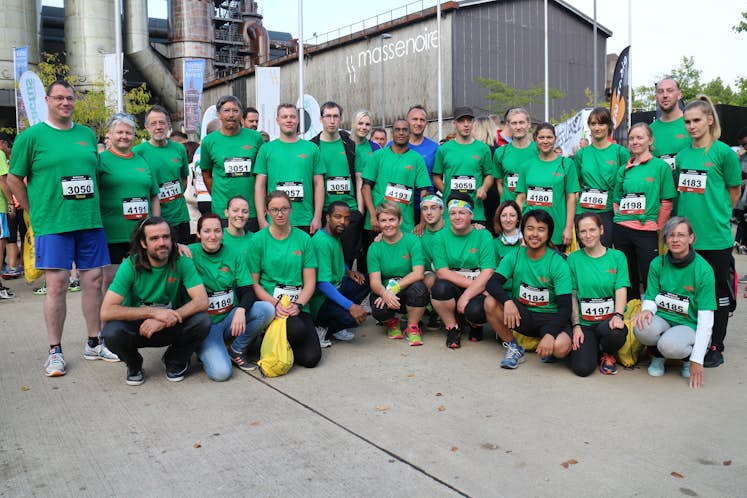
We are part of a cross-border community
In the ’70s and ’80s, other organic stores sharing our ecological and social goals were introduced in other countries. A whole range of stores took the name NATURATA. Their objective was to market high-end organic food products, mainly of Demeter quality, while taking into account the interests of all the economic stakeholders.
That is why we also decided to use the protected mark NATURATA for our activities. Today, all NATURATA stores and distributors of Naturata brand products are members of the association NATURATA International – Gemeinsam Handeln e.V. From a legal point of view, though, NATURATA Luxembourg remains an entirely independent company.
We support independent activities of horticultural selection
In 2006, as a member of NATURATA International and in collaboration with the association Kultursaat e.V., we established the cooperative FAIR-BREEDING project. This project actively campaigns against international seed producers and their focus on a handful of varieties, some of which are genetically modified. Every year for more than ten years, we have earmarked 0.3% of our turnover in fruit and vegetables for growers working on the selection of organic and biodynamic fixed (i.e. reproducible) varieties of vegetables.

